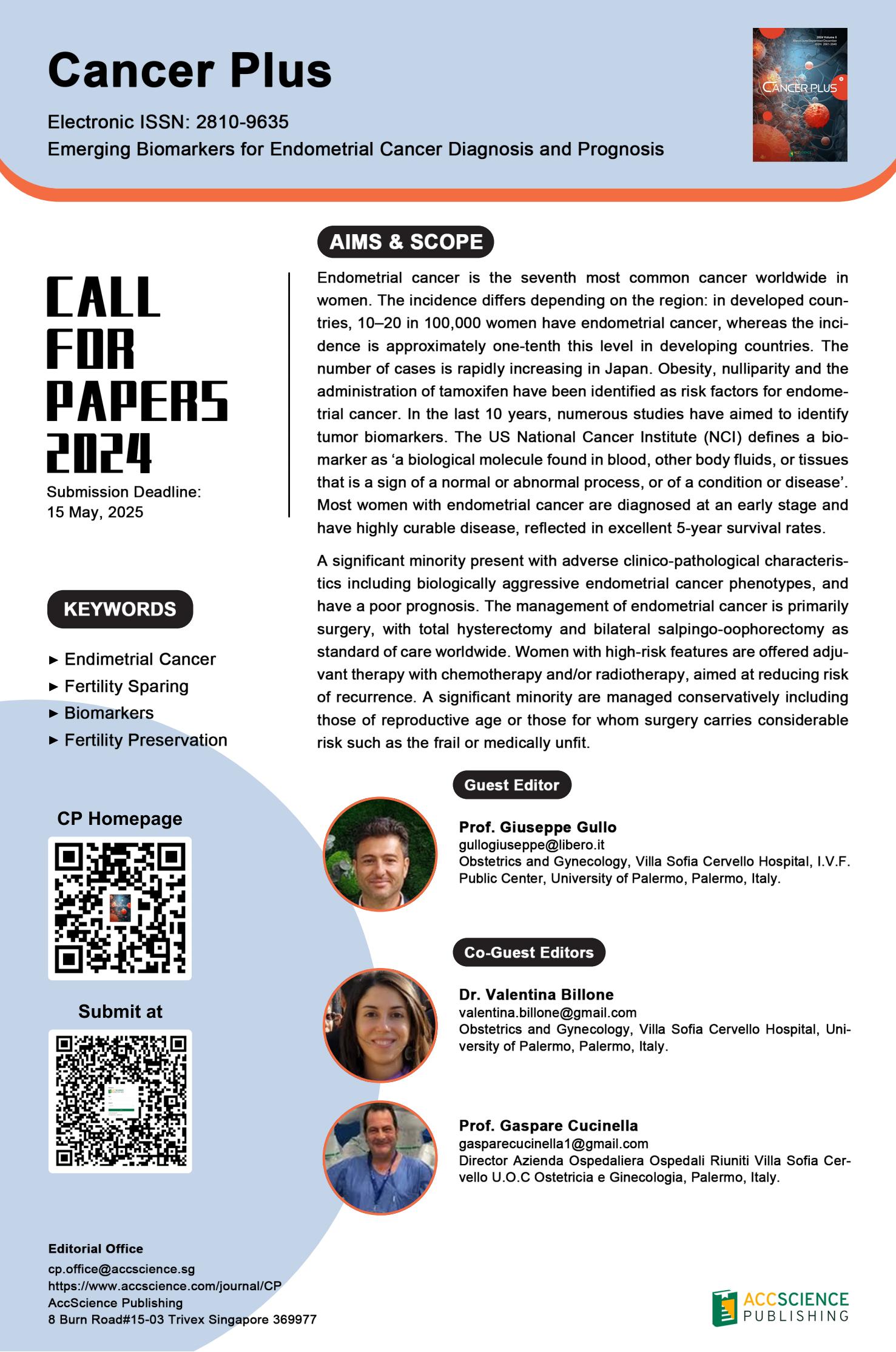
Endometrial cancer is the seventh most common cancer worldwide in women. The incidence differs depending on the region: in developed countries, 10–20 in 100,000 women have endometrial cancer, whereas the incidence is approximately one-tenth this level in developing countries. The number of cases is rapidly increasing in Japan. Obesity, nulliparity and the administration of tamoxifen have been identified as risk factors for endometrial cancer. In the last 10 years, numerous studies have aimed to identify tumor biomarkers. The US National Cancer Institute (NCI) defines a biomarker as ‘a biological molecule found in blood, other body fluids, or tissues that is a sign of a normal or abnormal process, or of a condition or disease’. Most women with endometrial cancer are diagnosed at an early stage and have highly curable disease, reflected in excellent 5-year survival rates.
A significant minority present with adverse clinico-pathological characteristics including biologically aggressive endometrial cancer phenotypes, and have a poor prognosis. The management of endometrial cancer is primarily surgery, with total hysterectomy and bilateral salpingo-oophorectomy as standard of care worldwide. Women with high-risk features are offered adjuvant therapy with chemotherapy and/or radiotherapy, aimed at reducing risk of recurrence. A significant minority are managed conservatively including those of reproductive age or those for whom surgery carries considerable risk such as the frail or medically unfit.



